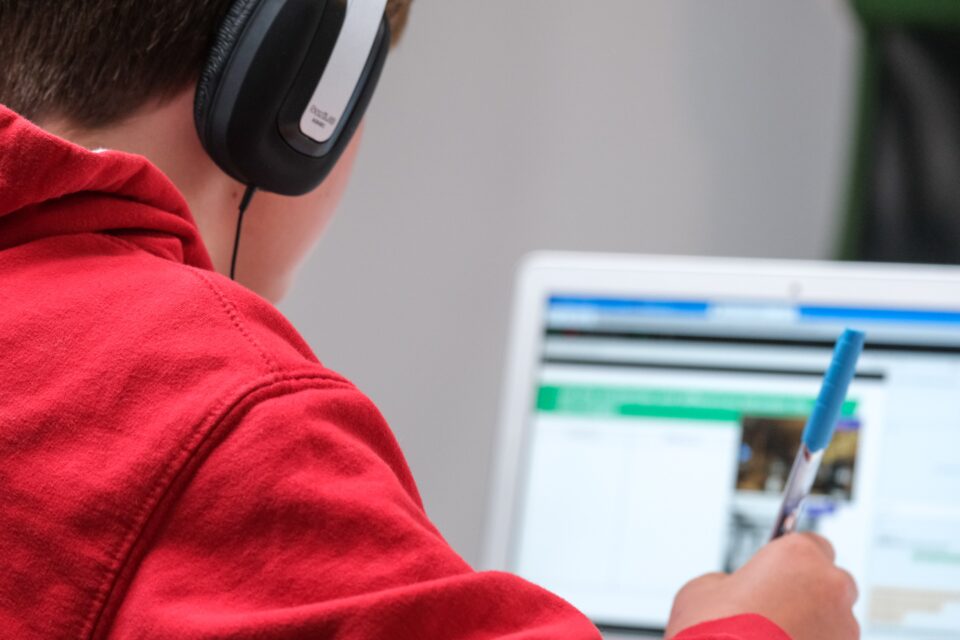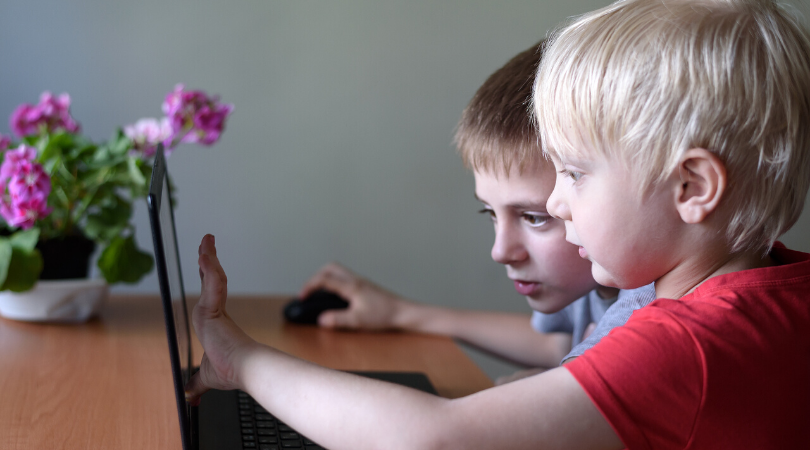
Parents’ Role In Online Learning: How To Help Your Child Learn Online

*Collaborative Post
During the pandemic, parents and children globally suddenly got a stark unexpected introduction to the world of online learning. Many of them were unprepared for this and had no idea how to handle the challenges it presented. Children became easily distracted, parents didn’t know how to force them to focus, and in many cases, the whole thing just turned into a big mess all the way around.
However, we shouldn’t dismiss the importance of online learning or parents’ role in online learning. Even when Covid passes, there will be many different types of situations in which children are forced to learn remotely. Children who live in remote areas, for example, are lucky to be living in an age in which technology allows for this possibility. What parents need are the right setups, laptops, and additional tools to help their children learn online and really benefit from it.

Things that parents can do to help their children in the online learning process
The following is a checklist that parents can use when setting their kids up for online learning. It is not an exhaustive list, of course, and everything depends on your own personal circumstances. But at a minimum, you should keep the following things in mind:
1. Create the right atmosphere
Let’s face it, the pandemic presented a challenge for everyone in terms of their ability to focus, even adults. Of course, if we’re sitting around the house we’d rather watch movies, play games, and chat with our friends online all day. This is even more true for children, who find it hard to sit still even in the controlled environment of the classroom.
However, classrooms do largely succeed in getting children to focus, and therefore what parents should do is try to emulate the classroom environment as closely as possible. Try designating one room in particular that will be the learning room. Before you think about the resources to employ in the learning process, start by eliminating whatever clutter and distracting objects might be in it so that your children can focus on the task at hand. If possible, try to get rid of whatever other noise might be coming into the room, as well. This way, your children have only one thing that they can possibly focus on.
The other members of your family play a role, as well. Family support in online learning means that everyone is involved – if you’ve got one kid on the computer in a given space at a given time, the others should be respectful of that and know not to interfere.
2. Make sure that your children are technologically equipped
One of the recurring stories that came out of the pandemic was children in remote areas being unable to get online due to poor connections, lack of technological resources, etc. While you might not be living in such extreme conditions that you can’t even get online, it is important to think about every aspect of your online setup and whether you are really meeting all your children’s needs.
First and foremost, you will need the right platform for your children to communicate with their class. It will be up to the school which one is preferable, but you’ll want to make sure that you can get on and stay on without interruption.
Beyond this, there are quite a few other resources that can be instrumental to your children in helping them maximize the online experience. For example, you might want to have the ability to record lessons so that you can review important points with your children and help explain them. A screen capture program can actually prove to be a big advantage over traditional classroom learning as children generally get one chance to hear what the teacher says, and then they have to remember it.
Depending on your children’s age and grade, there are a lot of fun programs out there these days that can make the learning experience more enjoyable and less laborious. Funbrain gives children the chance to explore math, reading, and educational games such as chess at different levels.
If your children have an interest in geography, you might check out National Geographic Kids for activities that illustrate geographical and scientific facts in a fun way that seems less like learning and more like a recreational activity.
There are many possibilities out there for programs that can enhance your children’s learning experience and create a fun atmosphere for learning. Start looking around online, and you are sure to see things that will both benefit your children and be enjoyable at the same time.
3. Get involved
Parent support for online learning is an absolutely essential part of the process. You can give your children every tool in the world, but if you’re not there to help guide them through the process, it will likely end in failure. This is not to suggest that you should breathe down their necks at every step of the process. This will only be counterproductive as it will both irritate your children and prevent them from taking initiative.
There is a happy medium to everything in life. You want to show your children that you are there for them, and check in on them regularly, but not do things for them or make them feel intimidated by you. Check-in with them on a regular basis to see how they are doing, offer help if they need it, and then let them take the lead. This will help to ensure that they take the initiative on their own in the future without thinking that they need to be forced into the learning process.
4. Establish a schedule
Scheduling is critical for all of us. People are creatures of habit, and forming good habits is essential to success in all areas of life. Even if you’re not rushing your kids to the bus, you can establish a schedule for both online classroom time, independent study, and whatever other elements go into your children’s learning.
Make it part of a whole daily ritual – Shower at 7, breakfast at 7:30, online learning at 8. You’ll find that your children start to adapt quickly and soon don’t need to be instructed every day. There are also programs available that can help you with time management, as well.
Set your kids up for a lifetime of learning
As mentioned earlier, we are at an important point in history in terms of technology and its potential for learning. While some people see this as either a poor substitute for “the real thing” or a potential way for kids to seek out harmful material, these are not healthy ways for parents to think. Online learning holds great promise both for distance learning from teachers, and extracurricular programs that could not only instil knowledge in your children but really give them a love of learning.
It’s up to you to make sure you have the right materials and methods in place. If you do, your kids will be on the path to a lifetime of happy learning.
*This is a collaborative post. For further information please refer to my disclosure page.
If you enjoyed this post you can follow more of our life, opinions and antics over on Facebook, Twitter, YouTube and Instagram. Plus feel free to come and join in with my parenting group ‘From One Parent to Another’ on Facebook.
If you’d like to contact me you can either leave me a comment or drop me a line via my contact me page.
For other topics similar to this one check out these suggestions below…




